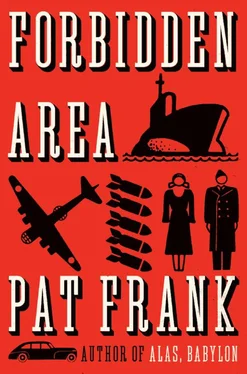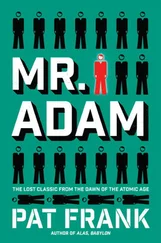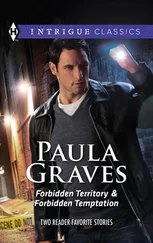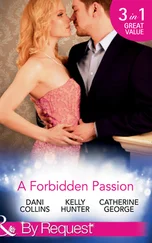“Are you stopping?” Nina asked.
“No, I was just thinking.” Henry looked at the speedometer and found that he had slowed to thirty.
“Well, I know what my pop will do to me,” she said. “He has an old razor strap. He hasn’t used it on me in years. But he will now. When he finds out we were at our place instead of the movies you know what he’ll think. And he’ll beat me. He’ll run me away from home.” Her right hand crept back over the narrow ridge of her left shoulder, as if she could feel the bite of the strap.
Suddenly they were coming up on the Oasis and Henry saw that there was a light inside. He pulled up to the door and got out. Then he saw that the place was empty. It was closed, and it was locked. A light burned in the barred liquor storeroom, to discourage thieves.
Henry didn’t get back into the car immediately. The desire for haste was gone. He felt, rather, as if he had been given a reprieve. He said, “I guess we can go on to the Innlet, and use the phone there.” The Innlet was an expensive motel, a bit further up the coast.
Nina said, “Henry, can’t we go home? Honest, I’m scared. He might kill you, Henry.”
Henry got back into the car. He did not immediately start the motor. He leaned his forehead on the wheel and tried to think. If there was any way they could report it without giving their names—But that would be silly. Nobody would believe him. They might not believe him anyway. If he called there was bound to be trouble, big trouble. Mr. Pope would take him apart. Finally he said, “Okay, we’ll go on back.” He started the car and headed south again, fast, but not as fast as they had come. He felt miserable, empty, a coward.
After a while she leaned her head against his shoulder and said, “Henry, thanks.”
He didn’t say anything.
“If we’d gone on to the Innlet I’m sure we’d have been too late anyway.”
“I guess so.”
“They must be through St. Augustine by now.”
“Sure.” He told himself that after all Nina had begged him not to call, and the only reason he hadn’t called was to save her. That’s what he told himself, but he didn’t quite believe it. He wished she hadn’t said, “He might kill you, Henry.” If she hadn’t said that, he would have gone on until he found a phone.
As they crossed the first bridge into St. Augustine he said, “Nina, you won’t mention this to anybody, will you?”
“I should say not!”
“Not to anybody at all!”
“I promise, Henry.”
They turned into the narrow street where she lived. It was two o’clock but all the lights were on downstairs in her house and he knew Mr. Pope was waiting up for them. He eased the car to a stop and opened the door gently. He took her as far as the steps, but he didn’t dare kiss her goodbye, he was that afraid of Mr. Pope.
Then he drove on to his own house, three blocks away. He couldn’t get to sleep until dawn. 2
The driver of the Buick sedan, headed south on AIA, was born Stanislaus Lazinoff in Smolensk, but for two years he had been trained to think of himself as Stanley Smith, American, born in Glebe City, Iowa. The choice of birthplace, like everything else in his manufactured past, was no accident. The courthouse at Glebe City had burned to the ground, along with all its records, some years before. An account of the fire had appeared in the Chicago papers, and had been clipped and forwarded to Moscow by a farsighted agent of what was then the NKVD, attached to the Russian consulate in a clerical post.
Stanley Smith was a stocky, thick-chested, handsome man with close-cropped, sandy hair and intelligent gray eyes. He was in his early thirties but looked younger. Indeed, all his credentials, including his driving license and Social Security card, asserted he was twenty-nine, this being considered a more suitable age for his exact role. He and his companions were very special people, the end result of a scientific experiment utilizing the Pavlov-Lysenko theories of conditioned reflexes. A new environment had been painstakingly grafted on personalities of unquestionable and fanatic loyalty to the state. An American body and mind had been synthetically created, while the heart remained Russian.
Stanley Smith was a second generation Communist. His father, a soldier in the Czar’s Army, had led the mutiny of a regiment in Leningrad, then St. Petersburg. Unfortunately his father worshipped the Army leader Trotsky, and had died suddenly and mysteriously. Stalin himself had helped carry the Lazinoff coffin, a clear indication that Stanley’s father, while misguided, was still an old Bolshevik hero.
At the age of sixteen Stanley enlisted in the Red Army for the Fatherland War, mistakenly called World War II by Western historians. Even then he knew it was no true world war—but one was coming. During the storming of Berlin, as the youngest lieutenant of engineers in Zhukov’s armies, he performed deft and daring feats with explosives that won him two Red Stars, promotion, and marked him for the future.
When he was twenty-five, and a major attached to the Army intelligence service in Budapest, he was recalled for special schooling. For five years, in Leningrad, Moscow, and Kiev, he attended agitprop, espionage, and counter-intelligence schools, and became proficient in such esoteric branches of military knowledge as silent killing and cryptography. He took language courses and studied English and American history. He crammed the fundamentals of nuclear physics, and the basics of biological warfare.
A major military operation is the most complex undertaking yet attempted by man. It may be recalled that the planning for Operation Overlord, the invasion of Normandy in June, 1944, was begun by a British staff four years earlier. Stanley was to participate in something infinitely more ambitious, the subjugation of a powerful nation with one massive blow. Just as a jet bomber must be on the drawing boards five to ten years before it can be launched against the enemy, so a human weapon must be prepared with equal thoroughness. This is particularly true if the humans mission is likely to be of critical importance. So Stanley’s education was still not complete. He was sent to a place that its inhabitants and a few people on the General Staff called, jokingly, “Little Chicago.”
Little Chicago was laid out in a section of the Ukraine so thoroughly and often devastated by draught, famine, and war that it was necessary to evacuate only a few kulaks to clear an area of a hundred square miles. This reservation was barricaded by mine fields, electrically charged wire, and watchtowers. In its center was erected a town in microcosm. Except that it nested in no suburbs and farmland and all its buildings were new, externally it could have been Glebe City, Iowa.
The concept behind the training of Stanley Smith and his companions was as old, in warfare, as the Trojan Horse. Something of the kind had been tried, spectacularly but without success, by the Germans in the Battle of the Bulge. A battalion of English-speaking soldiers had been dressed in American uniforms and infiltrated through the lines to spread confusion and seize bridges in Bradley’s rear. The Germans, usually so methodical, had not had time for adequate preparation and training. The Red Army did not intend to make the same mistake.
For two years Stanley Smith lived in Little Chicago, speaking only English, reading only American newspapers, magazines, and books. Three nights a week he attended an American movie in a replica of an American theater, complete with popcorn and soft drink machines. He not only learned to play baseball, but developed into a passable shortstop. He listened to the World Series on short wave, and could quote batting averages.
He took a course in American television and radio. Every Tuesday afternoon he listened to recordings, and watched kinescopes, of the most popular programs. He learned to identify the voices and faces of Eddie Fisher, Liberace, Jackie Gleason, Edward R. Murrow, and Lucille Ball. Some of the comedy programs, in which laughter was heard when nothing was funny, he found entirely incomprehensible. But he was assured by his tutor, a Hungarian who had worked for several years at the Ford plant in Detroit, that his reaction was quite normal.
Читать дальше












